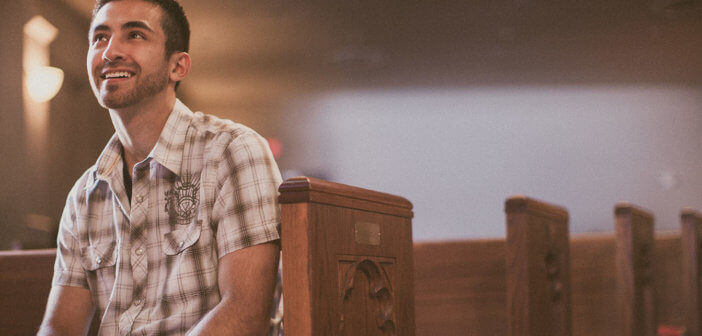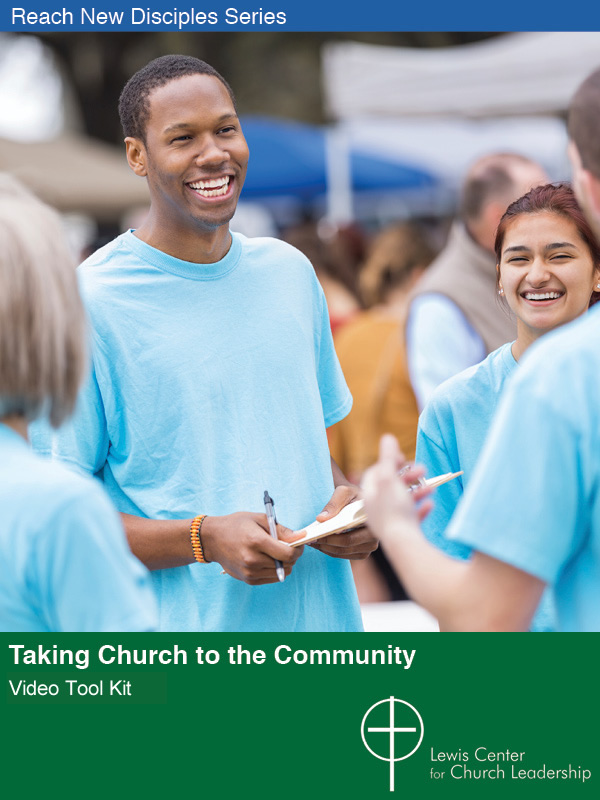Simple habits of congregational life, such as always sitting in the same pew or greeting the same people after worship, might seem normal and innocuous. But they can be unwelcoming and off-putting to newcomers. The good news is, simple steps to disrupt these habits can make a big difference to visitors and these changes can begin with you!
We are all creatures of habit. We get up at a certain time. We sit in assigned seats at the family dinner table. We park our car on a particular side in the driveway. Such habits are engrained in congregational life, as well. We tend to sit in the same pew every Sunday. We greet the same people every week. We get anxious if the service is not finished at the appointed time.
While these habits seem like small things to us, they may not be so inconsequential to outsiders unfamiliar with our patterns. Imagine visiting an unfamiliar church, taking an empty seat, and having someone glare at you or comment, “That’s where I typically sit.” Imagine that during the greeting time no one pays you any attention. Congregants don’t perceive that they have done anything wrong or different. But to the outsider, these habits come off as inhospitable.
There are times we need to disrupt our usual habits in order to be more sensitive to newcomers. Here are a few simple suggestions.
1. Change seats.
This may be one of the most challenging things for regular church-goers to do. We all have a favorite place we like to sit at home, at work, and at church. But at church, a new individual will have no idea that an empty pew is your customary seat. Resolving to sit in a different place each month can prevent us from developing the habit of always sitting in the same seat. For many of us this will be uncomfortable because we like the certainty that comes with knowing where we will seat each week and who will be sitting around us. In terms of hospitality, it means we won’t get upset if we see someone in “our” seat because we don’t have an assigned seat. The simple change of disrupting our pattern of sitting in the same seat can make a big difference to visitors.
2. Plan to arrive on time.
Some of us plan to arrive late for worship because we prefer to skip the announcements, or we just want to hear the preaching. While everyone runs a bit late on occasion, no one should slip into the habit of arriving late on purpose. Think of the perception it creates for a visitor if 25 percent of the congregation is habitually late. Disrupting the habit of arriving late can change the way others see your commitment to the worship experience and the whole community of faith. Arriving in time to catch the announcements helps you know what’s going on in the life of the church and being present for the whole service respects how all of worship, not just preaching, moves us toward experiencing God.
3. Greet newcomers.
When it comes time to pass the peace or when we shake hands with people at the end of the service, we tend to greet those we know the best. It’s an opportunity to catch up with friends we may not have seen since the previous Sunday. But how would you feel if you were visiting a congregation and a few people are polite to you, but never really engage because they are busy talking to people they know? In truth, there are probably members of the congregation, in addition to visitors, we could get to know better if we disrupted the habit of only greeting the few people we know well.
4. Stop watching time.
Many of us like things to be timely. We want things to start and end on time. But in worship, we have to avoid being so focused on the clock that we miss being in fellowship with God. What message does it send to visitors if congregants stare at their watches when the choir or sermon goes a bit long? Please don’t take this as an excuse to ignore the importance of a timely, well-paced worship experience. But I do believe we can become so focused on time that we miss what God has for us in that moment. We must disrupt our tendency to focus on the clock rather than God.
Habits like sitting in the same seat, arriving late, greeting the same people and watching time seem like small things. Yet changing these small things can make a big difference in your hospitality to visitors. And the change can begin with you!
Related Resources
- 4 Reasons Visitors Do Not Return by Doug Powe
- The New Welcome Video Tool Kit
- 50 Ways to Welcome New People, a free Lewis Center resource







